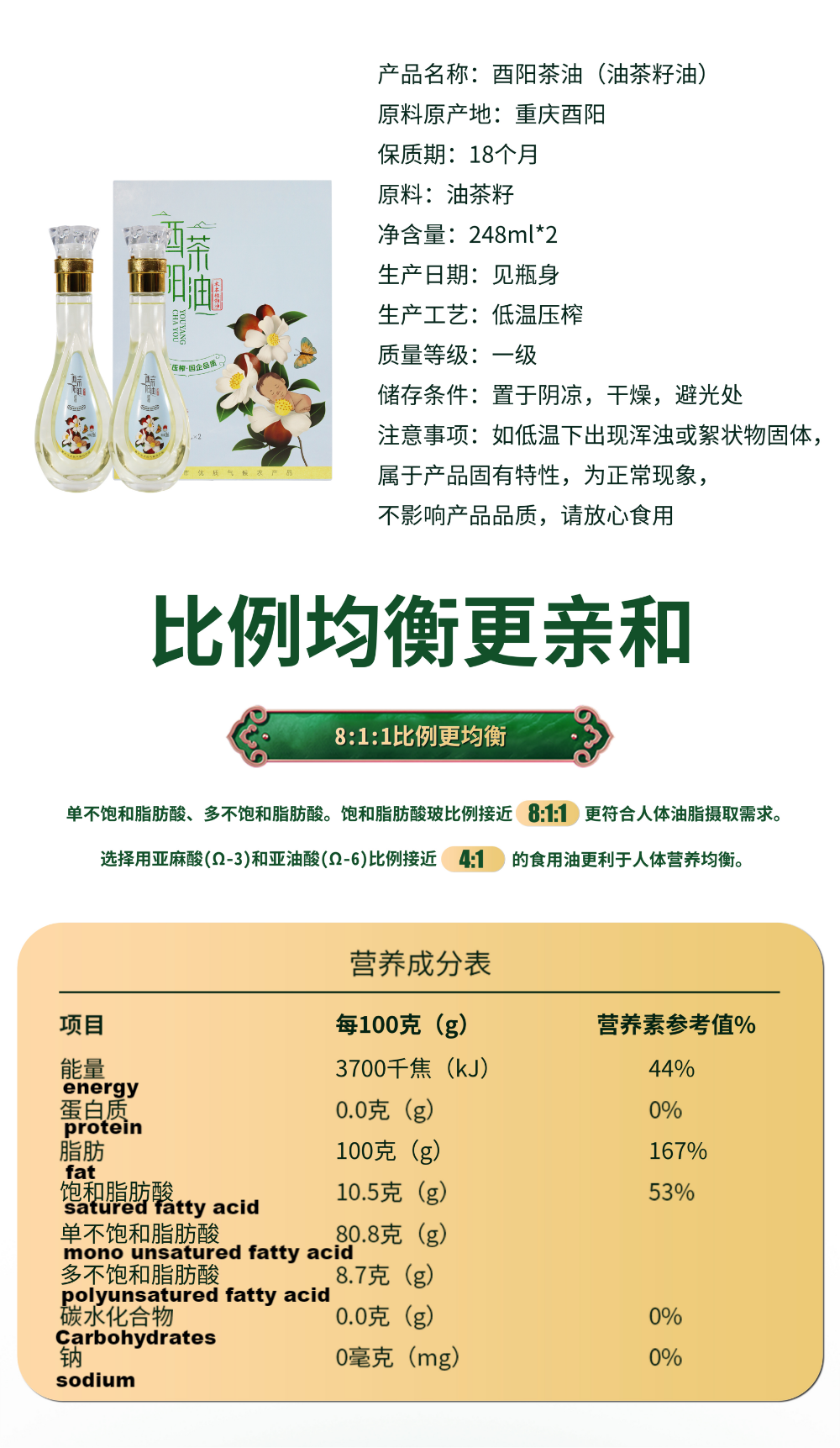INFANT AND MOTHER RECOMMENDED FOOD OIL
Camellia Sinensis oil is a nourishing and moisturizing oil that is rich in a number of beneficial ingredients, including:
-
Fatty acids: Camellia Sinensis oil is a good source of healthy fatty acids, such as oleic acid, linoleic acid, and palmitic acid, which can help to hydrate and protect the skin.
-
Antioxidants:The oil is also high in antioxidants, such as Vitamin E and polyphenols, which can help to protect the skin against environmental stressors and slow down the aging process.
-
Vitamins:Camellia Sinensis oil is also a good source of vitamins, including Vitamin A and Vitamin E, which can help to nourish and revitalize the skin.
-
Polysaccharides:The oil contains polysaccharides, which can help to soothe and hydrate the skin, making it a good choice for those with sensitive or dry skin.
-
Phytosterols:Camellia Sinensis oil is also rich in phytosterols, which can help to improve the skin's barrier function and reduce inflammation.
the products are from the original place of camellia trees, all georaphy surrounding and climate make the oil higher class as well as the traditional cold pressing tech.
Feature of the infant and mother food oil:
Monounsaturated fatty acids, polyunsaturated fatty acids, saturated fatty acids Ratio close to 8:1:1
Linolenic acid and linoleic acid ratio 4:1
what is advantage of this ratio? reference to additional information below.



knowledge reference:
Fatty acids can be divided into two main categories:
-
Saturated fatty acids: Saturated fatty acids are typically solid at room temperature and are found in animal products such as meat, dairy, and eggs. They have a negative impact on health when consumed in large amounts, as they can increase levels of cholesterol and contribute to heart disease.
-
Unsaturated fatty acids: Unsaturated fatty acids are typically liquid at room temperature and are found in plant-based oils, nuts, and seeds. They are considered to be healthier than saturated fatty acids, as they can help to lower cholesterol levels and reduce the risk of heart disease.
Some of the key functions of fatty acids in the body include:
-
Energy production: Fatty acids are a source of energy and can be broken down to release glucose, which is used by the body for energy.
-
Cell membrane structure: Fatty acids are an important component of cell membranes, helping to maintain the structure and fluidity of the cells.
-
Hormone production: Fatty acids are involved in the production of hormones and other signaling molecules.
-
Inflammation regulation: Certain types of fatty acids, such as Omega-3 fatty acids, have anti-inflammatory properties and can help to reduce inflammation in the body.
-
Brain function: Fatty acids are important for brain function, and a lack of certain types of fatty acids has been linked to cognitive decline and other neurological conditions.
These are just a few of the key functions of fatty acids in the body, and it is important to have a balanced diet that includes a variety of different types of fatty acids to ensure optimal health and wellness.











